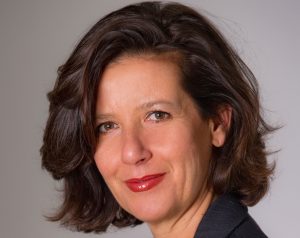Laura Penna: Pandemic Shines a Light on Plight of Disadvantaged Communities — and Bolsters Social Impact Investment

Head of Group Social Impact Banking: Laura Penna
UniCredit continues to focus on financial inclusion and positive social impact.
The pandemic has put the spotlight on social issues, says UniCredit’s Laura Penna, head of Group Social Impact Banking. “We’re seeing much wider awareness, not only from governments and the EU, but also within corporations and the financial sector.”
UniCredit’s Social Impact Banking (SIB) programme has been active since the end of 2017. Reflecting on changes in the social-impact landscape, Penna says, “Companies want to be part of the solution and offer new products and services to support social needs”.
Attention to societal support will further be empowered by the EU Recovery Fund, which will direct resources towards health, education, inclusion, and support for disadvantaged people. “It will provide the social impact sector with a completely different scale of funding,” Penna believes.
The sector is maturing, given the evolution around social taxonomy and shared standards at EU level. “That will significantly help the financial system to increasingly support societal challenges and avoid ‘impact-washing’,” Penna says. “That is particularly important considering the on-going ‘green transition’ that must be managed in a holistic way, taking into full account the related social impacts.”
Social challenges are many and varied across Europe. Issues around poverty and unemployment are pressingly relevant in many countries and regions. “There are also differences in training and education needs,” she points out. “According to the OECD / INFE 2020 international survey of adult financial literacy, around half of the EU adult population does not have a good understanding of basic financial concepts.”
Aging populations and the related pressure on the social and health system are increasing across the continent. “The pandemic revealed the urgent need of social and health system for this fine-tuning and re-assessment.
“In some countries, we are seeing our society change from welfare state to community welfare, where the role of governments in directly managing social infrastructures and essential services has been delegated to the private sector.
“This means that the role of banks as social actors must change. We need to better understand the social priorities in each of our communities and provide the right kind of support to make a concrete positive contribution in the short and long terms.”
But who, exactly, is social impact banking aimed at? Penna has a simple answer. “Our first aim is to improve accessibility to finance and related services for vulnerable groups, including women, the young, the elderly, and fragile enterprises such as start-ups, NGOs, and micro-businesses.
“We combine lending with support by improving financial skills and raising awareness.” Statistics show that the pandemic has had a particular impact on the livelihood of women. Last year, UniCredit launched a dedicated offer in Italy specifically aimed at female entrepreneurs and companies with a focus on women and families.
“In addition, we also help companies become more ESG-focused,” Penna says. “We support their transition and mobilise capital towards the UN’s Sustainable Development Goals. All projects and initiatives we support must have a concrete and measurable social mission with a wider group of indirect beneficiaries.”
UniCredit also works with various stakeholders to drive social inclusion and sustainability within communities. The Finance 4 Social Change Interreg project, in which UniCredit was a main partner, aims to build impact investing capacity and social entrepreneurship across the European Danube region.
How the social impact banking sector will evolve depends on a few factors, Laura Penna says. “I believe there will be a gradual adoption of common standards among all relevant financial actors, driven by the new EU social taxonomy. This will increase capital flows towards social causes as part of the ESG framework.”
The overall offer of sustainable finance and inclusive finance in Europe will grow, she believes. “This will likely be accompanied by more examples of multi-stakeholder projects for the benefit of local communities and increasing attention to human rights, starting with the employee, and stretching across the whole supply chain to the end client.”